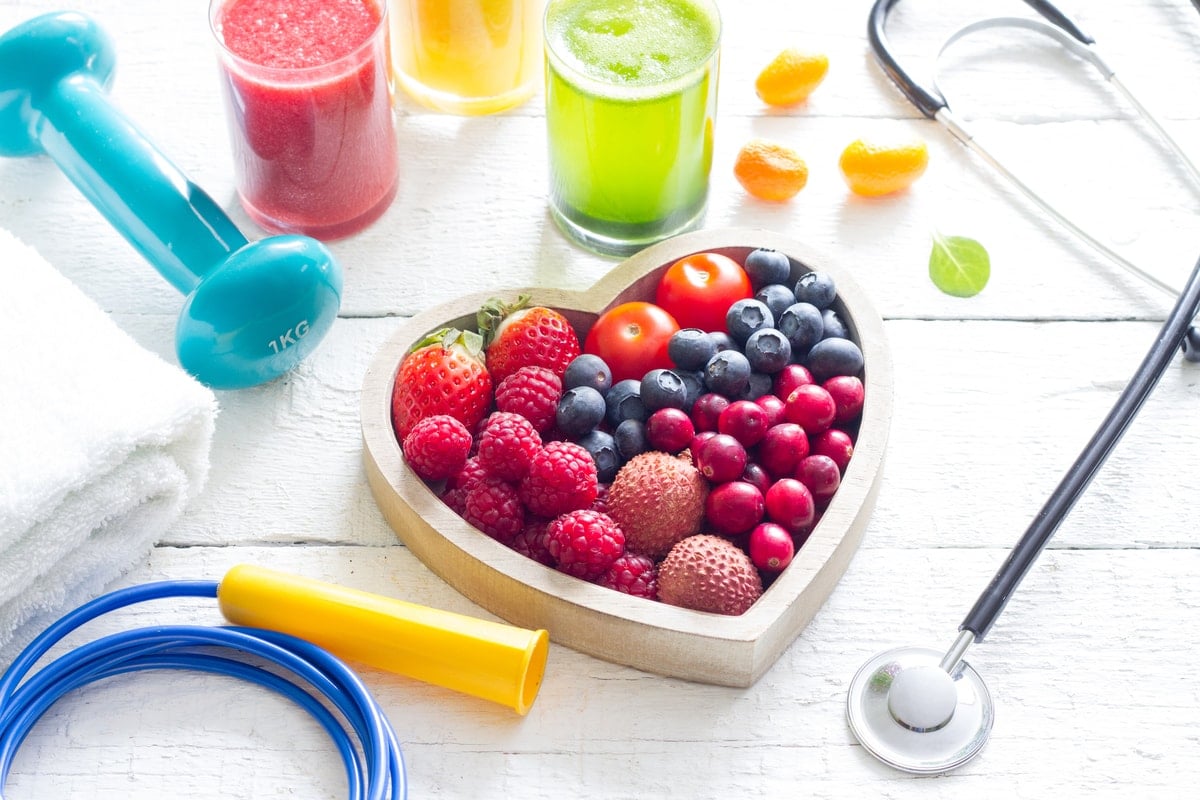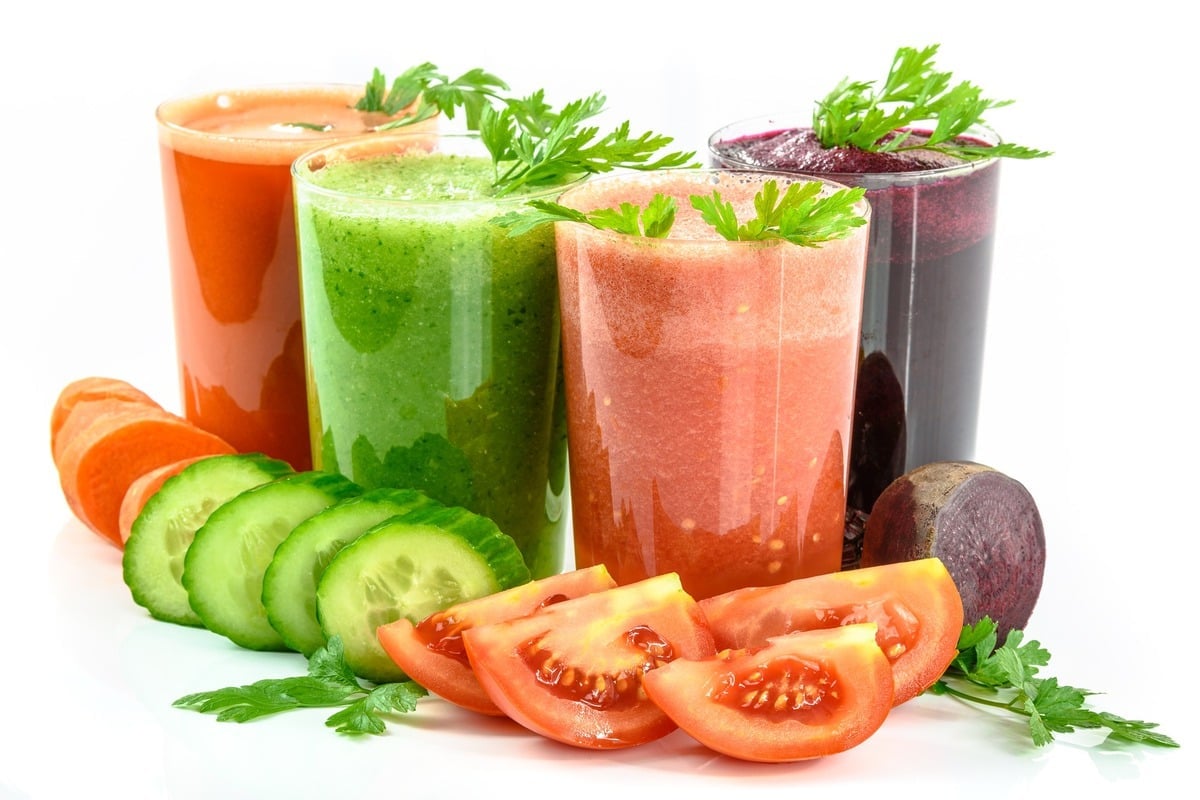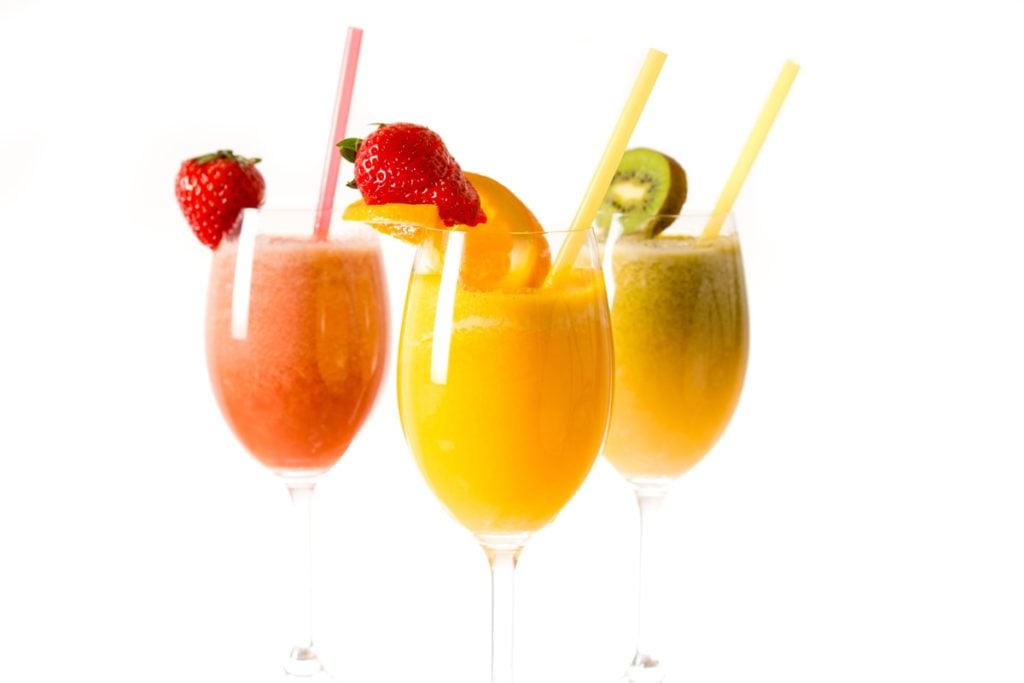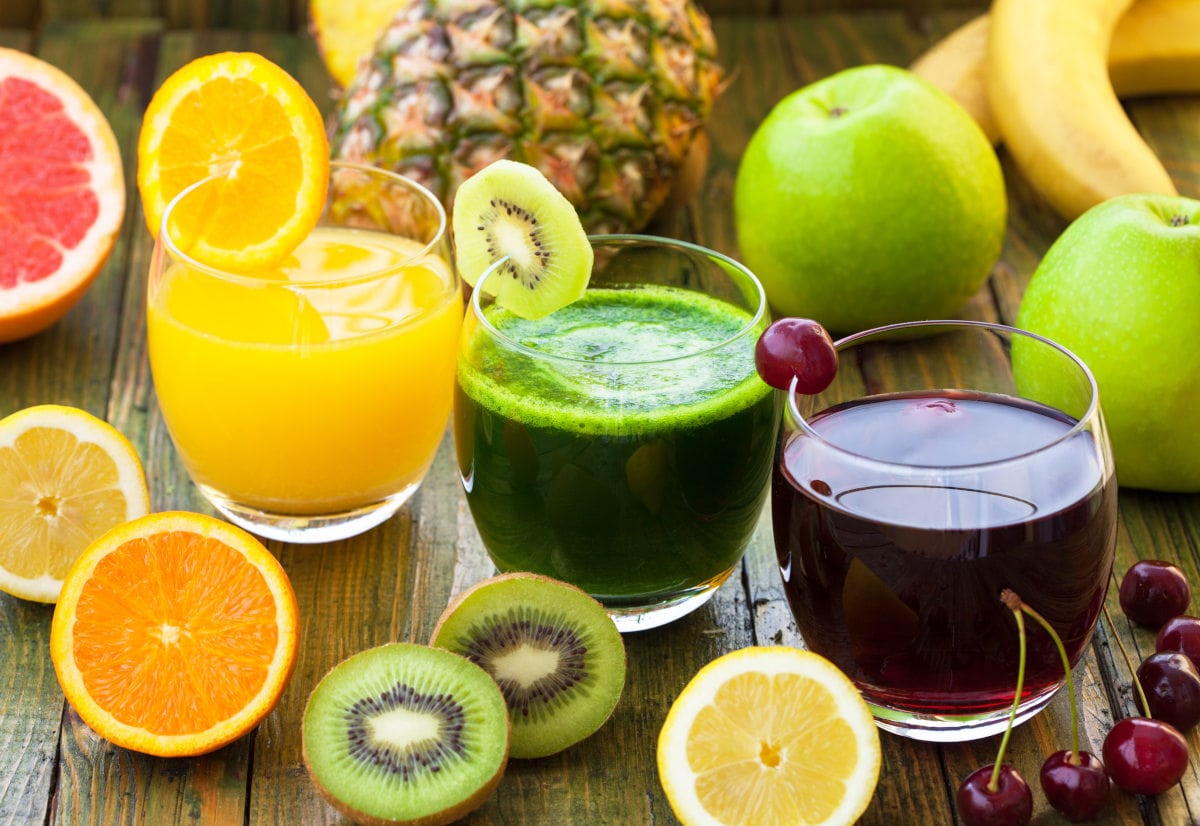
We are learning more each day about the importance of vegetables and fruits in the diet. Juicing is becoming a popular way to add servings of fruits and vegetables and enjoy the nutritional benefits that come with them. How effective is this practice, though? For example, is juicing good for your heart and cardiovascular system? Can it help prevent coronary heart disease?
Table of Contents
- What is Juicing?
- Why Do People Get Into Juicing?
- How Healthy is Juicing?
- What About Juicing and Cardiovascular Health?
- What Should I Include in Juicing for Heart Health?
- What are Polyphenols?
- Juicing for Your Individual Needs
- The Potential Risks of a Juice Cleanse
- Some Things You Should Know About Juicing
What is Juicing?
Juicing uses a specially designed appliance, a juicer, to strip fruits and vegetables down to liquid form. That liquid contains most of the nutritional benefits of the foods like vitamins, minerals, and some antioxidants.
It is not quite the same thing as eating a piece of whole fruit or a vegetable, though. You do lose the fiber benefit, for example. Fiber exists in the solid matter of the food and juicing strips that out.
There are two core methods for juicing:
- Centrifugal — Centrifugal juicers grind the fruit and vegetables into a pulp and separate the solid material from the liquid.
- Cold-press —- Cold press juicers crush the fruits and vegetables to get the juice out of them.
If you are wondering which juicer is for me? One is not necessarily better than the other when it comes to the end product's nutritional value. Centrifugal juicing is faster, though, so the more common choice.
Why Do People Get Into Juicing?
There are two basic reasons many try juicing:
- Detox — Some people eliminate solid food completely for a set number of days and use juicing for nutrition. They believe that it cleanses the body of toxins. That is open to debate in the healthcare community. There is no solid clinical evidence to suggest this is true or even that detoxing is necessary. While environmental toxins do build-up, it’s not clear that juicing flushes them out.
- Nutrition — Probably the best reason to take up juicing is to supplement your diet. Fruits and vegetables are rich in vitamins and minerals. Drinking fresh juice does add that additional nutrition. The fact is that many people in this country don’t get the recommended servings of fruits and vegetables, and juicing is one way to meet that goal.
It is also better to drink fresh juice than what you can buy at the grocery store.

Even products labeled 100 percent juice will have some chemical preservatives in them. Juicing is an easy way to get a lot of nutrients at once.
How Healthy is Juicing?
Fruits and vegetables are healthy, so juicing is too, for the most part. There is no evidence that juicing is healthier than eating whole fruits and vegetables, though. In fact, you miss out on that all-important fiber contribution when you juice. The fiber is mostly in the skin. There is little doubt that fruits and vegetables in any form may reduce your risk of chronic illness, though.
What About Juicing and Cardiovascular Health?
According to the Centers for Disease Control and Prevention (CDC), heart disease is the leading cause of death in this country. It is the leading cause of death for both men and women and all ethnic groups. It is estimated that one person dies from this disease every 36 seconds.
Heart disease, or cardiovascular disease (CVD), is a broad term that covers many chronic illnesses that affect the cardiovascular system, which includes the heart, blood, and blood vessels. CVD would include illnesses such as:
- Angina
- Myocardial infarction (heart attack)
- Stroke
- Heart failure
- Hypertensive heart disease
- Coronary heart disease
- Cardiomyopathy
- Aortic aneurysms
- Peripheral artery disease
That is a shortlist of some of the more common illnesses that can impact the cardiovascular system.
There are many risk factors for heart failure and coronary heart disease. Some of them you don’t have much control over, like genetics. There are lifestyle choices that can increase your risk, though, including eating an unhealthy diet.
The current guidelines Dietary Guidelines for Americans 2020-2025 emphasize the importance of fruits and vegetables along with whole grains, low fat or fat-free dairy, and lean proteins. Based on that recommendation, clearly, there is some benefit to juicing if you are concerned about your cardiovascular health. Juicing involves fruits and vegetables, and they are good for you. Not all fruits and vegetables offer the same benefits, though.
What Should I Include in Juicing for Heart Health?

Flexibility is one of the best things about juicing. It can introduce you to fruits and vegetables that you might not eat otherwise, even though they are good for you. Beet juice would be high on that list.
Beetroot juice is high in nitrates that can help widen blood vessels, something especially helpful as you get older. With age, the walls of the blood vessels lose some of their elasticity. In addition, a lifetime of eating can lead to the build-up of plaque on those walls. The combination can mean narrow blood vessels that put you at risk for everything from an aneurysm to a heart attack to a stroke.
Pomegranate juice also gets accolades for its heart benefits. Limited studies found that pomegranate juice may have antihypertensive and anti-inflammatory benefits. In other words, it might help lower systolic blood pressure and reduce inflammation, something associated with most chronic illnesses.
In one study, cardiac patients taking medication for atherosclerosis did see benefits when drinking pomegranate juice, as did those on high blood pressure drugs. Pomegranate juice is a polyphenol-rich food, which is why it is a heart-healthy food choice.
What are Polyphenols?
Polyphenols are compounds found naturally in some plant foods and behind many of the heart health benefits that come from juicing. They are antioxidants, so they neutralize free radicals that can damage cells and increase your risk of chronic illness.
Some more common polyphenols include:
- Flavonoids — Found in apples, dark chocolate, and red cabbage
- Phenolic acids — Found in most fruits and vegetables along with whole grains and seeds
- Polyphenolic amides — Mostly found in chili peppers
There are also polyphenols in berries, curcumin, whole grains, and seeds, including flax and sesame.
The antioxidant properties in polyphenols may lower systolic blood pressure and reduce the amount of bad cholesterol in the blood. These benefits are both essential for cardiovascular health. There is also evidence that polyphenols may work to reduce your risk of developing blood clots.
There are benefits that come with polyphenols that go beyond the cardiovascular system. A diet rich in these antioxidants may lower your risk of certain cancers including breast, and prostate.
Polyphenols can benefit digestion, too. They promote the growth of healthy bacteria, specifically bifidobacteria.
One study found that polyphenol-rich foods played a role in boosting memory. The study involved older adults who saw an improvement in memory in just 12 weeks following a diet that included polyphenol-rich foods.
Juicing for Your Individual Needs

Choosing the right combination of fruits and vegetables is important for heart health. You can make the choice based on your individual needs:
- Pomegranate, guava, cherry, and beetroot juices may help lower systolic blood pressure.
- Apple, berry, and tomato juices may lower total cholesterol.
Maybe you are wondering if orange juice is good for your heart. Orange juice contains hesperidin, an antioxidant known to improve blood vessel function. One study asked 24 healthy men at risk for developing heart failure to drink 500 milliliters of orange juice a day for one month. They did see lower blood pressures and better blood vessel functioning.
Most juices will have some antioxidant benefits that help the cardiovascular system and reduce inflammation. That would include green juices from spinach, broccoli, and kale.
The Potential Risks of a Juice Cleanse
Juice cleanse is a buzz phrase you see a lot on juicing websites. It is an approach to juicing designed to help you lose weight and detox. While juicing to add more nutrients to your healthy diet might have some cardiovascular benefits, the juice cleanse may do more harm than good.
The juice cleanse involves drinking vegetable and fruit juice only for up to three days. There are risks associated with this practice. It will likely result in weight loss because you would be taking in very few calories for several days. That kind of weight loss rarely lasts, though.
Drinking nothing but fresh fruit juice also cuts out any fiber from your diet. Fiber is what cleanses the digestive tract. A low fiber diet is a significant risk factor for obesity.
Also, drinking large quantities of some fruit juices can cause damage to the kidney. Some fruits contain high amounts of a substance that can help kidney stones form and cause other kidney problems.
Juice, even fresh juice, contains a lot of natural sugar. Consuming too much natural sugar can lead to weight gain and high blood sugar. It may even put you at risk for developing type 2 diabetes.
Some Things You Should Know About Juicing

There are some good reasons for juicing, especially if you are not a fan of fruits and vegetables. Everyone should aim to eat up to five fruits and vegetables a day, preferably two whole fruit and three vegetables. That is not easy to accomplish, so if juicing helps get you there, it’s worth the effort. Consider some other things you should know about juicing.
Don’t waste the fiber.
The biggest downside to juicing is losing the good fiber that comes with fruits and vegetables. It is one of the healthiest parts of the food, but it gets wasted with juicing. You can get past this by adding some pulp back into the juice. The pulp contains fiber. You can also save the pulp and use it in a different recipe like whole-grain muffins or mix it into a soup if it’s a green juice.
Juicing is not the healthiest choice.
Keep in mind, though, that juicing is not more healthy than eating whole fruits and vegetables. The body is designed to process whole foods, so there is no reason breaking them down like that would make them healthier.
Juicing should not replace meals.
There is no proof that juice cleanses work. In fact, if your goal is weight loss, juicing might backfire. If your body thinks you are starving yourself, it will slow your metabolism down. That might actually lead to obesity.
Fresh juice is a good supplement, but it doesn’t offer enough protein to keep your heart, or any other part of your body, healthy. Use the juice to complete your healthy diet, not as your sole source of food.
Aim for low sugar content when you juice.
Fruits are high in sugar and calories. Consider making most of your juice vegetables like spinach or cucumbers, then add a piece of fruit. Your drink will be refreshing and not overly sweet. It also won’t cause your blood sugar to spike.
Be smart about juicing.
The juice you make at home is not pasteurized, so bacteria can grow in it. Do not make big batches of fresh juice in advance. Ideally, drink what you make right away.
Also, be sure to thoroughly wash your fruits and vegetables before putting them in the juicer. Then, cleaner the juicer, following the manufacturer’s instructions after every use.
Can juicing prevent heart failure?

The bottom line is if you want to try juicing, you should because there are some real benefits to your cardiovascular system and other parts of your body, including your brain. There is lots of evidence to support the idea the juicing at home can lower your blood pressure and cholesterol.
Juicing is not a replacement for a healthy diet and lifestyle, though. You need to eat a balanced diet and get regular exercise. If you are worried about your cardiovascular system, focus on heart-healthy foods like oily fish, whole grains, and fats that are good for you, like olive oil. At the same time, stay away from unhealthy fats like:
- Butter
- Bacon fat
- Cream sauces
- Gravy
- Margarine
- Nondairy creamers
Stick with low-fat protein sources, too, such as seeds and skinless chicken breast. Are hard-boiled eggs good for your heart? Eggs offer some of the best protein.
And, yes, add plenty of fruits and vegetables to your diet. Juicing can be part of that, but it shouldn’t be all you do to improve your heart health. If you limit yourself to just juice, if nothing else, it will get boring. The CDC suggests you should enjoy fruits and vegetables in a variety of ways to get the full benefit from them.
Sources:
https://pubmed.ncbi.nlm.nih.gov/31286079/
https://www.cdc.gov/healthyweight/healthy_eating/index.html
https://www.ncbi.nlm.nih.gov/pmc/articles/PMC3257627/
https://www.ncbi.nlm.nih.gov/pmc/articles/PMC5438379/
https://www.webmd.com/heart-disease/news/20090720/daily-glass-of-orange-juice-is-heart-smart
https://academic.oup.com/nutritionreviews/article/67/1/49/1840959?login=true
https://pubmed.ncbi.nlm.nih.gov/20028599/
https://www.webmd.com/diet/features/juicing-health-risks-and-benefits#

Leave a Reply